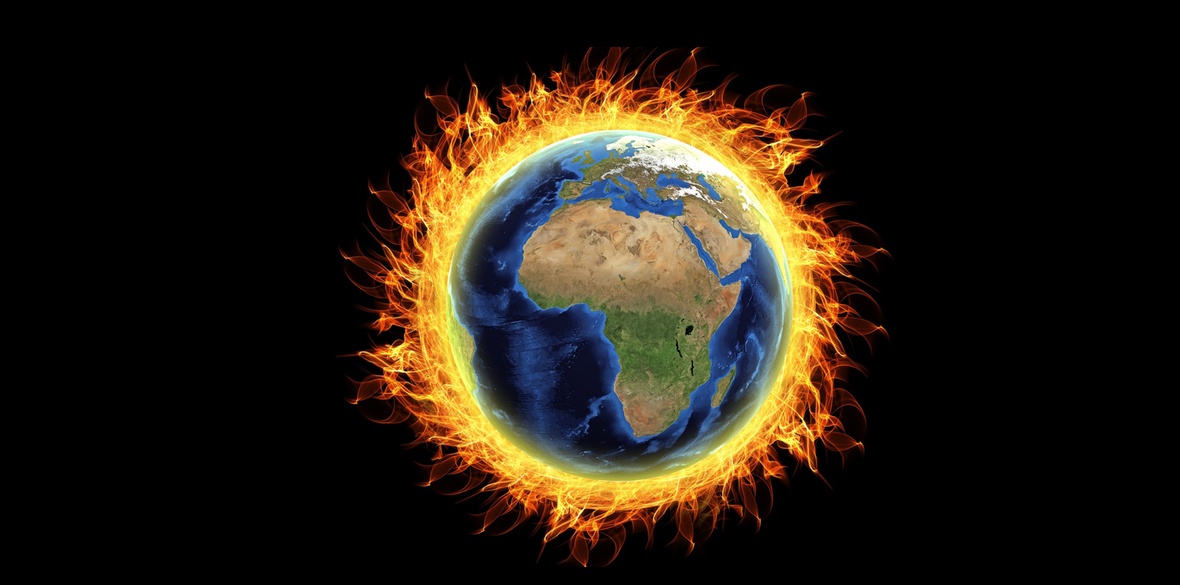This is the last article you can read this month
You can read more article this month
You can read more articles this month
Sorry your limit is up for this month
Reset on:
Please help support the Morning Star by subscribing here
MOST of the British corporate press covered a meeting between Italy’s deputy prime minister Matteo Salvini and Tony Blair in September after the far-right leader posted a picture of himself with the former PM on Twitter.
“Tony Blair has ‘friendly, positive meeting’ with Italy’s Matteo Salvini,” was the headline to the Guardian’s report on the story, which focused on the rank hypocrisy of Blair — who now runs a charity aiming to combat “populism” and restore faith in the political “centre” — meeting with the far-right “populist.”
And while the irony of that is somewhat interesting, the story glossed over the much more intriguing point mentioned in the subheading: “Far-right minister believed to have discussed Azerbaijani gas pipeline project with ex-PM.”
Seeing how my flatmate is a political refugee from Azerbaijan, this immediately had me wondering what this pipeline project is and why Blair, who seems to spend all of his time attacking Jeremy Corbyn these days, is talking to a fascist wannabe about it?
The project in question is called the Southern Gas Corridor (SGC), a 2,200-mile enterprise costing around £34 billion bringing fossil gas from Azerbaijan to Italy. It links two pipelines to one currently under construction.
The first piece of the project is called the South Caucasus Pipeline (SCP). It begins under the Caspian sea, runs through Azerbaijan and Georgia and finishes at the Turkish border.
The second part is the Trans-Anatolian Pipeline (Tanap), which runs the length of Turkey and under the Marmara Sea.
The final piece of the project is the as yet unfinished Trans Adriatic Pipeline (Tap), which will run through Greece, Albania and end in Italy.
So what’s Blair got to do with any of this? His involvement goes back to 2014 when BP hired him as a consultant, a fitting position for a man who reopened Iraq’s oil fields to Western corporations.
BP is the lead partner in a consortium of dodgy oil companies — including the fantastically corrupt State Oil Company of Azerbaijan Republic (Socar) — drilling up the fossil gas from underneath the Caspian Sea and essentially running Tap and the SCP.
According to a September article in the New Civil Engineer magazine, the reason Blair met with Italy’s far-right leader was “to lobby Salvini over the benefits cheaper gas would bring to Italy.”
There has been fierce opposition to Tap in Italy, particularly in the southern town of Melendugno where a Unesco-protected olive grove with 500-year-old trees stands in the way of the pipeline.
In November last year, the Italian government used a Mussolini-era law to put the entire town on lockdown to prevent the people from protesting against the pipeline.
Salvini and his anti-migrant, anti-”globalist” League party appear to be fully onside with the pipeline. In a television interview last month Salvini said: “We need Tap because energy will cost less for Italian families.”
However, Salvini is but the deputy prime minister and his League is the minority party in Italy’s coalition government. The largest party, the Five Star Movement, campaigned on protecting the environment and initially opposed Tap.
Late last month, however, Prime Minister Guiseppe Conte approved Tap’s construction saying it was “no longer possible to intervene in this project,” and that his government has “done everything we could but now the time has come to take the necessary decisions.”
The SGC is now due to start pumping Azerbaijani fossil gas into Europe by 2020.
Surely, given the UN’s Intergovernmental Panel on Climate Change’s warning that we only have 12 years to stop a climate catastrophe, the EU should now be giving up on fossil fuels and investing in renewable energy. And, surely, British newspapers should stop giving Blair a platform, hold him accountable for the bloody consequences of the Iraq war and focus on climate change.
So far humanity has released an estimated 2.2 trillion metric tonnes of carbon dioxide into the atmosphere since the industrial revolution, causing average global temperatures to rise 1°C.
This rise has already begun to melt the polar ice caps, raise sea levels and drastically alter weather patterns; cause extreme storms, blizzards, heat waves and droughts; set arctic forests on fire; kill off entire species; acidify the oceans; displace people from their homes and much more.
So, how does the EU justify increasing its reliance on yet more polluting fossil gas and striking a deal with the human rights abusing government of Azerbaijan?
Well, as far as I can tell, it hasn’t even bothered to address the latter, though it falls over itself to thrust money at Azerbaijan. In February this year the European Investment Bank lent €1.5bn (£1.3bn) to Tap, and followed this up in March with €932 million (£822m) to the Turkish section, Tanap.
In July the European Bank for Reconstruction and Development lent Tap a further €500m (£442m).
The EU classifies the SGC as one of its Projects of Common Interests, which the bloc defines as “key infrastructure projects […] that link the energy systems of EU countries.”
These Projects of Common Interests, it claims, “are intended to help the EU achieve its energy policy and climate objectives,” which are “affordable, secure and sustainable energy for all citizens, and the long-term decarbonisation of the economy in accordance with the Paris Agreement.”
Remember the Paris Agreement? The governments of the world are supposed to be limiting “the rise of global average temperatures to well below 2°C above pre-industrial levels” and pursue “efforts to limit the temperature increase to 1.5°C,” as Article 2 of the agreement states, by 2030.
Our planet is currently on course to warm up by an apocalyptic 3.4°C by the end of this century, according to Climate Action Tracker, an independent project tracking global government progress to stick to the Paris Agreement.
The EU is sort of attempting to kind of stick to the Paris Agreement, though Climate Action Tracker currently ranks its efforts as “insufficient.” Its low-carbon economy roadmap is looking at (but not planning or implementing) “cost-efficient ways to make the European economy more climate-friendly and less energy-consuming.”
The roadmap aims to cut greenhouse gas emissions to 40 per cent of 1990 levels by 2030, 60 per cent by 2040 and 80 per cent by 2050.
How does the SGC project fit into the EU’s low-carbon economy roadmap? Well, it doesn’t.
According to a January 2018 study by the environment and human rights campaigners Bankwatch, no climate impact assessment has been made public by any EU institution involved in the SGC’s promotion or financing.
In fact, the Bankwatch’s analysis shows “a high risk that the gas from the [SGC] would be as climate-damaging as coal” — the dirtiest fossil fuel — and its annual carbon dioxide emissions would be “comparable to the annual emissions of Bulgaria.”
The SGC is a dangerously short-sighted project. Not only will the EU’s financial support for the project enrich fossil fuel companies and prop-up awful governments of Azerbaijan and Turkey, it will also lock the continent into decades of fossil fuel dependence.
But as the UN’s scientists point out we don’t have decades. We have 12 years.
Ben Cowles is the Morning Star’s web editor. You can contact him on Twitter via @Cowlesz.
 Ben Cowles
Ben Cowles









